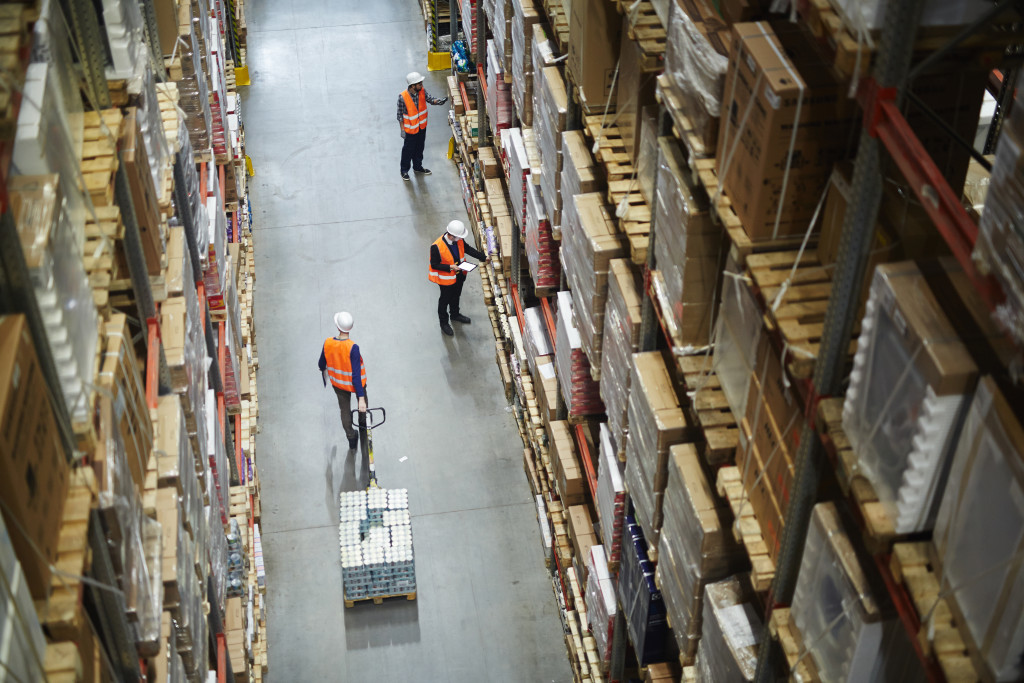In recent years, tech companies in Singapore have produced cutting-edge technologies to provide insights and leverage productivity in handling any type of business. These include the accountability, maintenance, supply, orders, deliveries, and sales of different products. Some great examples are automatic guided vehicles and automated warehouse systems that help optimize warehouses operations and address workforce scarcity issues.
Inventory management represents several potential losses and profits for a company. That’s why it’s crucial to recognize which solution can prevent inefficiencies or stocking issues. In this article, we’ll talk about the role of inventory management systems in maximizing profitability.
Provides real-time data access
An inventory management system can generate data instantly, allowing a business to fully control its profitability. You have the freedom to adjust every item in stock depending on the market and consumer base. It’s also easier to have an updated summary of the stocking level regardless of the number of branches you manage.
Understand potential inventory loss
There are plenty of reasons your business may experience inventory loss, which is understandably inevitable. This may come from waste from items burned, spilled, stolen, undercooked, contaminated, or other causes. Any missing item has to be accounted for to accurately analyze costs and usage, which can be done using an inventory management system. This will help managers understand why a particular item has gone to waste and how it can be prevented.
In food manufacturing, poor, improper handling is one of the prominent causes of inventory depletion. An inventory management system helps employees monitor the expiration date and understand the right time and place to use it.
Reduce overhead expenses
It is common knowledge that reducing your overhead expenses can lead to an increase in profitability. Every business has its own hidden overhead, which is often incurred by inventory. If you have a large overhead around inventory management, it can lead to a lot of manual labor, including organizing, transporting, and counting stock.
Adopting an inventory management system helps operations to be more efficient since you can easily reduce overheads and manual processes. Instead of counting stock, you can easily rely on the software to do the entire work for you.

Higher product turnover
All the items in your inventory have to sell. That’s why business owners like it when their stocks run out because it means their product lineup is actually selling and losing its stock at a rapid pace. So if there’s a high turnover in sales, profitability follows.
Having control in your inventory management shows which of your products are selling faster, allowing you to optimize your inventory. This will also avoid stock shortages when the demand for a specific product is high. The last thing you want is to lose customers because you keep running out of stock. It’s also easy to conduct inventory planning and analysis instead of browsing multiple spreadsheets.
Promotes product diversification
Constant mutability has made online retail a challenging game to play. Retailers are now going online, doing different product gimmicks to gain as many customers as possible.
That’s why it’s always a wiser move to sell a large array of products to customers. An inventory management software provides retailers essential insights about emerging product trends, which gives them the knowledge to reshape their product offerings for higher diversification.
Reduce staffing cost
Hiring staff is one of the most expensive elements of running a business. If you have a warehouse to manage, you have to hire a group of people who will manage the facility alone. With an inventory management system, you’re reducing the need for personnel, cutting down staffing costs in the process.
Another great appeal of the inventory management system is that it provides insight into how many staff you will need to accommodate the demands of your business.
Well-organized warehouse system
A messy and disorganized warehouse facility won’t only make a business less productive and efficient. It also paves the way for even bigger problems, such as the difficulty of monitoring each product category’s quantities in the inventory.
Lack of awareness of inventory status and product quantities can lead to excess stocks and stock-outs. This can lead to unnecessary charges for your company and waste of valuable facility space. Using an inventory management system makes the storage facility easier to maintain, helping you monitor item quantities.
Still, warehouse managers and staff should also see to it that warehouse operations stay organized to achieve positive results. Sometimes, we can’t always rely on a digital platform to maintain a well-organized inventory. You also have to ensure proper policies and guidelines are in place to make sure everything is in the right order.
With the fast-moving tech developments, inventory management platforms are likely to incorporate more cost-saving features in the near future. From streamlining processes to executing the business’s vision, these systems aren’t only a worthy investment, but they can also grant opportunities to surpass your highest sales goals.

